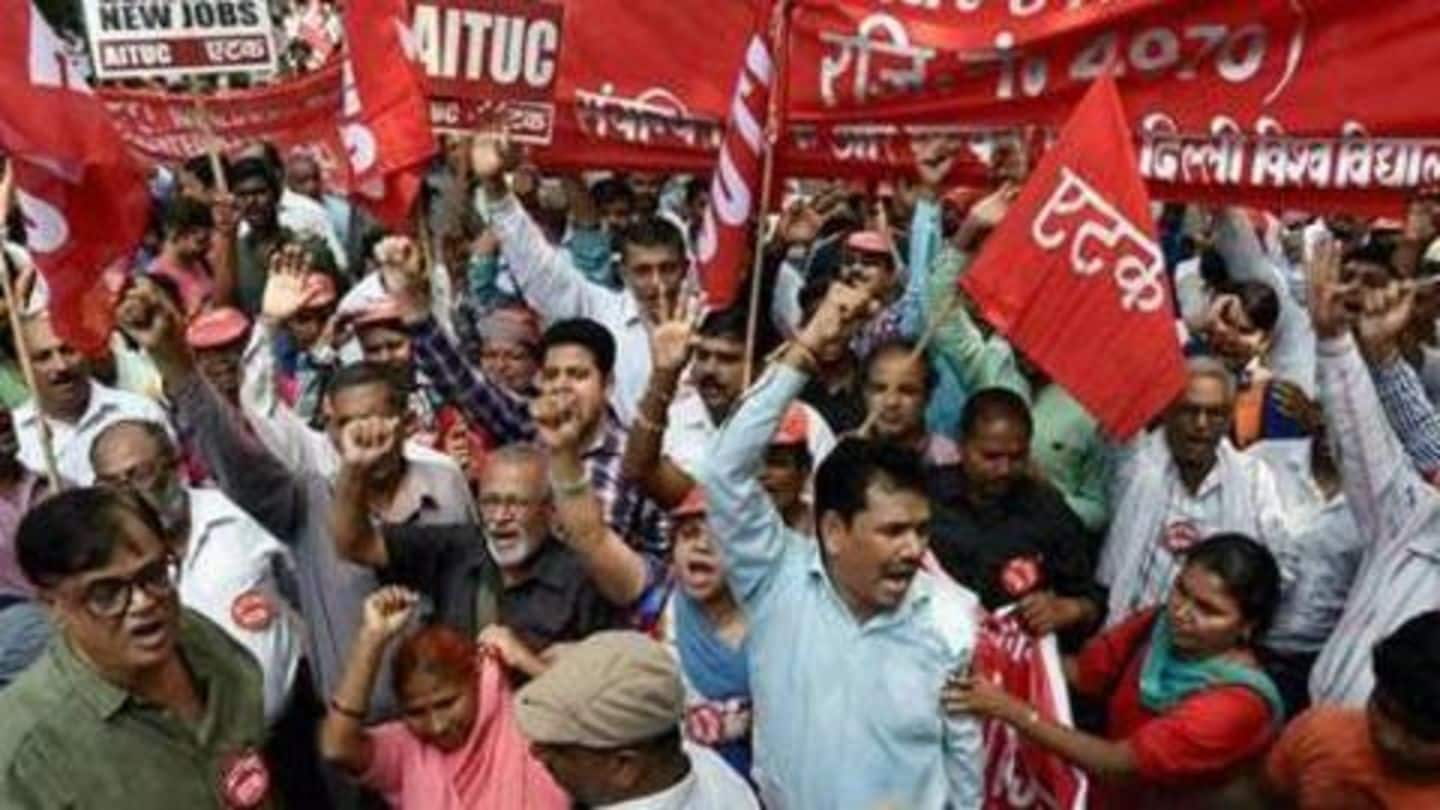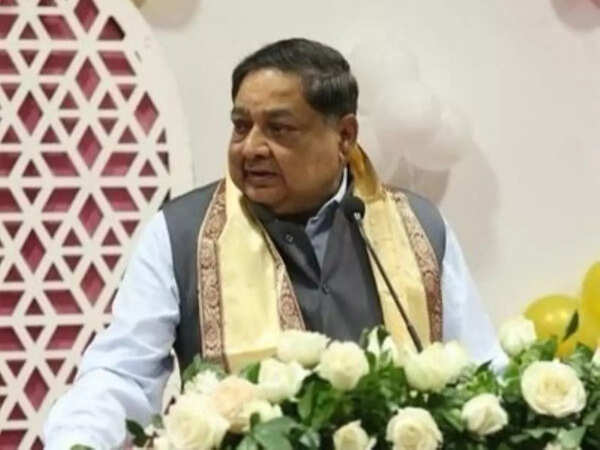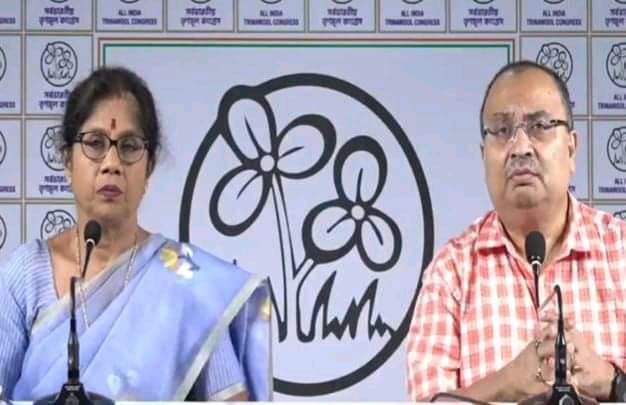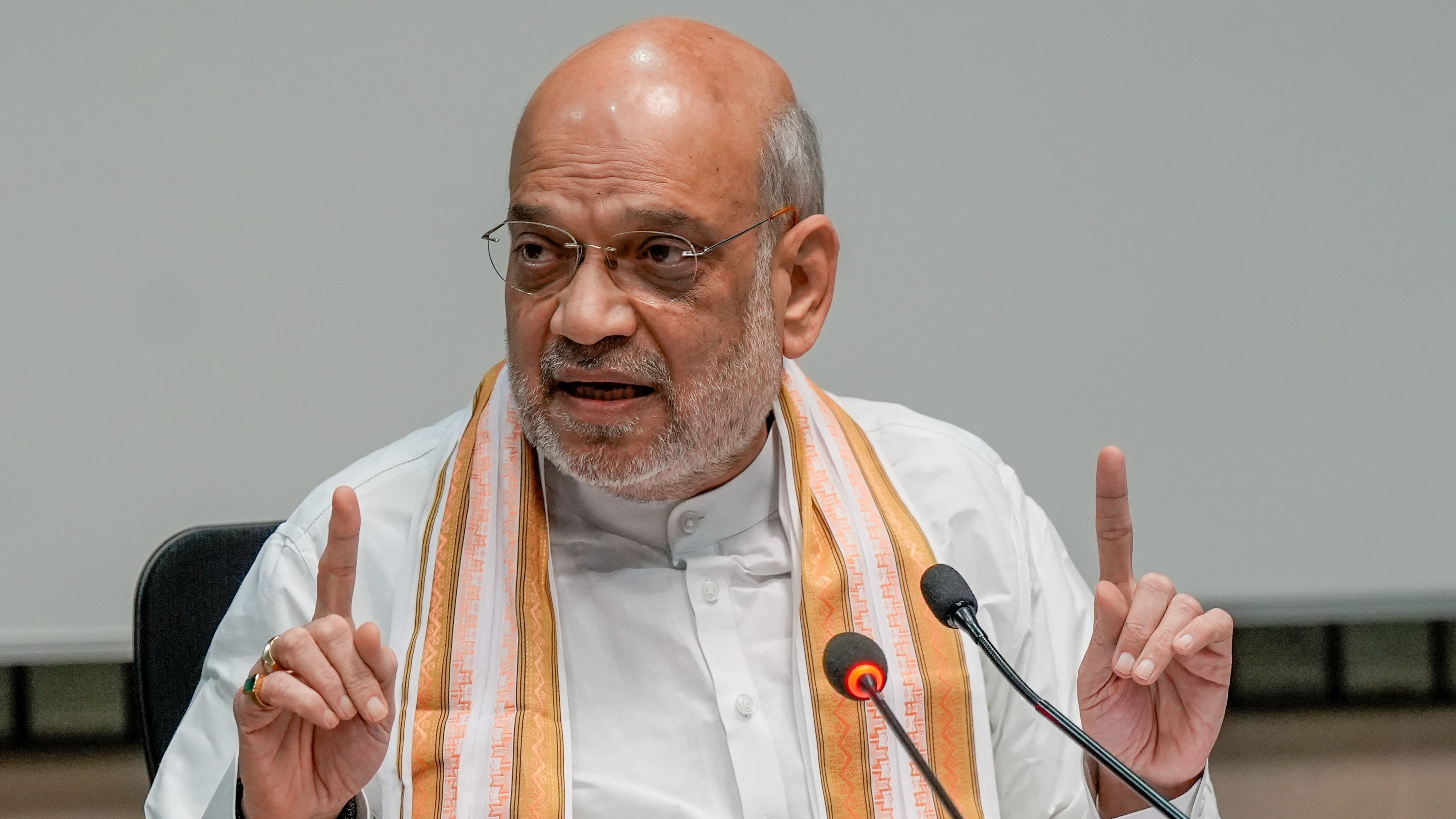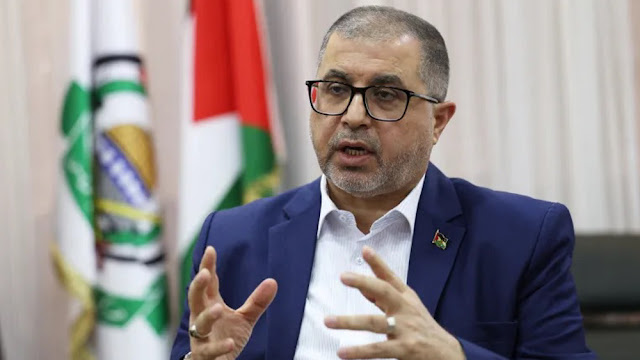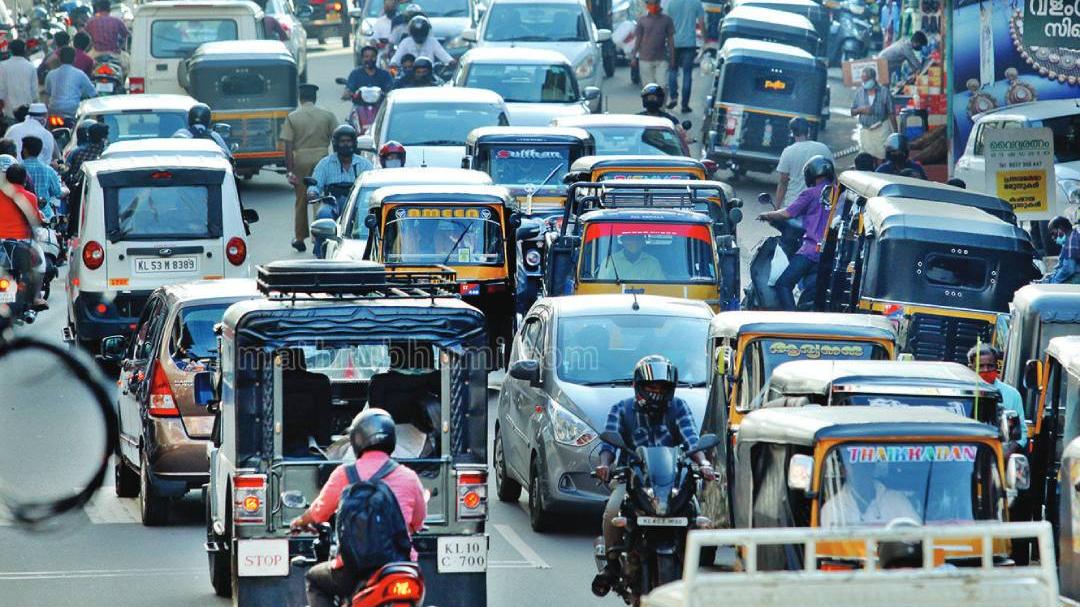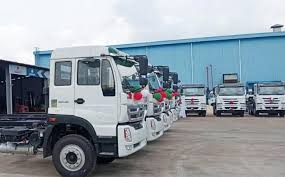PTI | July 09, 2025 | New Delhi : Normal life was not impacted in most parts of the country due to a nationwide strike called by several trade unions to protest against labour policies of the central government, though some sporadic incidents of violence were reported from West Bengal.
However, the trade unions claimed that the strike was successful, and a large number of workers abstained from work, impacting the postal, banking, insurance, and mining sectors.
Although the agitation remained by and large peaceful, reports of violence were received from pockets of West Bengal after Left-wing activists clashed with police and TMC supporters in various districts.
In a statement, a forum of 10 trade unions said there was a bandh-like situation in many areas of the country, like Puducherry, Assam, Bihar, Jharkhand, Tamil Nadu, Punjab, Kerala, West Bengal, Odisha, Karnataka, Goa, Meghalaya, and Manipur, etc. Reports of partial bandhs were also received in many segments of Rajasthan, Haryana, Telangana, and Andhra Pradesh, among others.
There were industrial and sectoral strikes held in Madhya Pradesh, Maharashtra, Uttar Pradesh, Uttarakhand, and Gujarat, it added.
They have called the one-day strike in support of their demand for doing away with four labour codes, contractualisation, privatisation of PSUs, increasing minimum wages to Rs 26,000 per month, as well as the demands of farmer organisations for minimum support price for crops based on Swaminathan Commission’s formula of C2 plus 50 per cent, and loan waiver for farmers.
The forum had last year submitted a 17-point demand to Labour Minister Mansukh Mandaviya.
The government has not been conducting the annual labour conference for the last 10 years, the forum claimed.
In the national capital, the markets across the national capital remained open on Wednesday, and the bandh had no impact on Delhi’s commercial activity, said the Confederation of All India Traders (CAIT).
“All 700 markets and 56 industrial areas in Delhi are functioning as usual,” said CTI chairman Brijesh Goyal.
The forum said the unions in Delhi, after taking out a procession in industrial areas, held a public rally at Jantar Mantar, which was addressed by national leaders.
There were reports of the strike impacting a few select services in Kerala, Jharkhand, and Puducherry.
The general strike was initially called for May 20 but was rescheduled, following the Pahalgam terror strike and subsequent Operation Sindoor. The ten trade unions are INTUC, AITUC, HMS, CITU, AIUTUC, TUCC, SEWA, AICCTU, LPF and UTUC.
The forum had claimed that more than 25 crore workers are being mobilised for the “general strike” in protest against the new labour codes, along with other issues.
Many parts of Kerala, ruled by the CPI(M), came to a standstill due to the strike. The strike has received strong support from trade unions and Left-leaning organisations in the state.
In Puducherry, privately operated buses, autos and tempos were off the roads due to the strike. The management of private schools declared a holiday as a precautionary measure, according to sources. Shops, establishments, vegetable and fish markets remained closed.
Vehicular movement in different parts of Odisha, including in the capital city of Bhubaneswar, has been affected on Wednesday due to the strike by trade unions and drivers’ associations.
Commercial vehicles remained off the roads in Assam on Wednesday as members of several unions, including tea garden workers, staged demonstrations across the state.
Tourist taxi services between Assam and Meghalaya were suspended on Wednesday as part of a nationwide ‘chakka jam’ called by central trade unions and national federations.
The agitation impacted the normal movement of Haryana Roadways buses at some places.
In places like Hisar, Bhiwani, Kaithal and Kurukshetra, the normal movement of the state transport was impacted.
The roadway employees staged a sit-in protest at the bus terminals in support of the demands.
Normal life remained largely unaffected in Karnataka on Wednesday, though protests were held in various places in the wake of the strike.
All India Power Engineers Federation claimed that over 27 lakh power sector workers hit the road across the country to protest against privatisation.
The opposition CPI(M) on Wednesday claimed that the general strike called by 10 central trade unions and supported by the Left parties received an overwhelming response from the working classes in West Bengal.
State CPI(M) secretary Mohammed Salim claimed that the banking, insurance, transportation sectors and factory workers overwhelmingly participated in the strike.
Madhya Pradesh Bank Employees Association (MPBEA) chairman Mohankrishna Shukla claimed that around 40,000 employees in about 8,700 bank branches across the state joined the strike. They include staff of 11 public sector banks and some regional rural banks (RRBs).
Left-leaning bank unions — All India Bank Employees Association, All India Bank Officers Association and Bank Employees Federation of India (AIBEA, AIBOA and BEFI) also supported the all-India strike, leading to disruption in services in some parts of the country.
However, there was no impact on private sector banks and many large public sector banks like SBI, PNB and BoB. Receipts and payment of cash, sending cheques for clearance, and all other routine work in the branches, where these unions had a strong presence.
“As per our information, clearing of cheques in the National Grids will be affected today due to the strike. About 4 crore cheques for about Rs 20 lakh crore were delayed by one day for clearance,” AIBEA general secretary C. H. Venkatachalam told PTI.
As far as the insurance sector is concerned, the All India LIC Employees’ Federation and All India Insurance Employees Association participated in the strike.
The impact was visible in three areas as far as LIC’s operations were concerned due to the strike call, All India LIC Employees’ Federation Joint Secretary P. Vijay Kumar said.
Premium collections, claims settlement and policy servicing were impacted due to the strike, he added.


